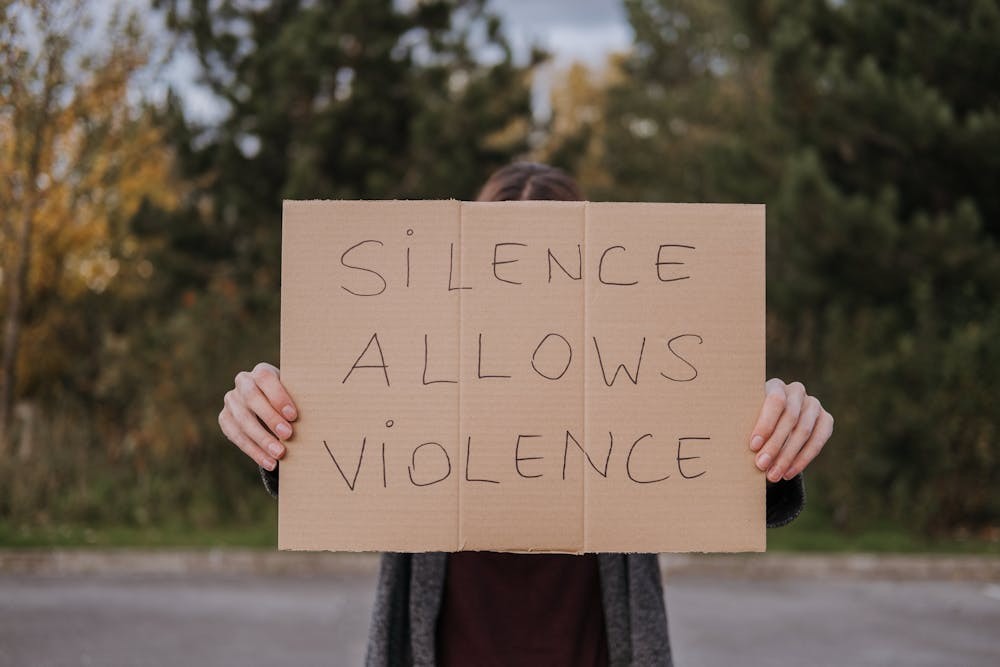Why confident, justice-oriented women are punished in public systems
The woman who knew too much
She is articulate, principled, professional, and polished—measured in her cadence, practiced in her facilitation , and fully aware of the power her clarity holds. She enters each room equipped with documents, timelines, policies, and annotated proof of harm, accompanied not by a lawyer or a team but by an interior certainty that justice requires witness. Her affect aligns with her record, her voice with her memory, her pace with the rhythm of the meeting she refuses to mirror. She speaks fluently in both grief and policy, and her refusal to stumble draws attention not to herself but to the gaps between institutional promise and the practices it permits. She is what the system fears most: impossible to discredit and unwilling to yield.
These women—these mothers—arrive fluent. Credentialed, composed, strategic, and fully prepared to participate in a professional exchange of ideas. They are accustomed to being read as competent, their tone as assured, their evidence as diligence. But when they walk into a school meeting, the rules shift. Assertiveness is recast as aggression, precision is reframed as threat, and fluency becomes suspect. Grief becomes the evidence against them.
These are women who spent decades being taken seriously—who built careers on clarity—only to discover that the maternal role, when applied to a disabled child in a public system, reverses the cultural translation. What once earned them access now marks them as dangerous. The woman who once sat at the boardroom table is now told she’s difficult for saying her child deserves safety.
Her demand for fairness ruptures the quiet choreography of deferral—the polite agreement to pretend the rules are already being followed. She does not look for direction. She asserts presence. She expects inclusion. She asks where the accommodations are. She points to the law. She holds up the glossy equity framework and asks it to matter.
-
Why clarity gets punished
I’ve written about documentation, tone policing, gatekeeping, gaslighting, institutional betrayal, and grievability and legitimacy separately, butsometimes it helps to see those pieces in conversation—because together, they reveal something larger. This post draws together the threads of clarity, competence, and credibility, and asks: why do systems recoil when mothers speak plainly about harm? Why does it […]
When fragility cloaks itself in professionalism
Public systems in British Columbia drape themselves in the appearance of impartiality—mission statements, codes of conduct, and gentle postures of care. But underneath the soft language is a structure that rewards complicity and punishes truth. What appears benevolent is calibrated for containment.
Professionalism becomes the mask for fragility. Calm becomes a demand. Grief is required to be soft. Inquiry must appear humble. And when a woman refuses to disfigure herself to meet those expectations, when she speaks clearly and holds firm, she becomes intolerable.
She does not destabilise the meeting through erratic conduct or theatrical excess, but through the unrelenting steadiness of her recall, her refusal to euphemise, her insistence that the harm be spoken plainly. Her documentation returns the past to a room that survives on forgetting, and the discomfort of that clarity is attributed to her person rather than their practice.
And so the room must recast her: difficult, aggressive, unstable. The discomfort she evokes is absorbed by her body. The system begins to describe her in affective terms—tone, style, attitude—never admitting that what truly bothers them is her unwillingness to perform powerlessness.
-
Collective punishment: how schools displace guilt, erase harm, and preserve the collective
One of the things that was so traumatising about the collective punishment that was callously perpetrated against my daughter was the light and evasive tone of the principal. She said that the punishment had to be “swift.” I frequently wondered about the choice to psychologically wound disabled children while treating the infliction of that wound […]
The institutional appetite for containment
The punishment is subtle, procedural, and relentless. Her file grows heavy with notes. Requests go unanswered. Staff stop replying. She is told communication must go through a new channel. Her child’s support plan is delayed, diluted, postponed again. Meetings are booked without her, or cancelled. Policies are referenced but never applied. The system smiles and says, “We’re doing our best.”
What she experiences as grief, the system frames as process. But she knows processes. She designs them. And this one—this absurd maze of delay, denial, and opaque decision-making—is built to extract compliance, not deliver support. Her expertise becomes threatening precisely because she sees it for what it is.
The message is clear: yield or be ignored. And so, she watches as others adapt. Speak gently. Cry in socially acceptable amounts. Thank them for the meeting. Avoid saying the word discrimination. Avoid saying the word harm. Translate outrage into soft suggestion. Call injustice “disappointment.” Whisper what should be screamed.
The danger of a seamless account
She threatens the system not because she is volatile but because she is exact. Her files are coherent. Her timelines align. Her tone is steady. Her predictions are recorded in email after email. Her affect matches the evidence. And so the system cannot unravel her story. It can only attempt to unravel her character.
Too emotional. Too rigid. Too intelligent. Too procedural. Too much. She is faulted for the precision they demanded from everyone else. And when they find no contradiction to exploit, they build one around her.
Devotion
She shows up again. She answers questions she already addressed in writing. She prints reports for people who could have read them. She retells the story of harm so the new team member can nod sympathetically and say “That must have been hard.”
Her devotion is not performance. It is repetition. It is love rendered in timelines, in checklists, in calendar reminders. It is staying steady even when her child falls apart. It is enduring the dread of advocacy’s awful cadence: confusion, urgency, confrontation, promise, betrayal—then again. Again. Again.
Resolution remains a myth wrapped in paperwork; recurrence is the shape of the days—each one folding into the last with a haunting familiarity, a looping of grief braided into administration, where yesterday’s outrage becomes today’s formality, and still she makes lunch, still she rereads the policy, still she logs the call, because repetition is both the language of bureaucracy and the only form of resistance left to those who remember.
-
The unseen wounds of advocacy: caregiver burnout, moral injury, and embodied grief
Caregiver burnout in BC schools reflects moral injury and systemic betrayal, as mothers fight exclusion and harm while advocating for disabled children.
When the system mirrors the abuser
Across sectors, the pattern repeats. Meetings, hearings, reports. The choreography is always the same. If you remember too clearly, if you assert too early, if you escalate too quickly, you become the threat. The system protects itself by recasting your grief as instability and your memory as aggression.
Many of these women have escaped other forms of harm. They know coercion when they feel it. They have survived partners who silenced them, churches that demanded obedience, workplaces that punished ambition. They learned to document everything. They know how to escalate. They know what a lie looks like in a transcript.
And when the tone of a meeting echoes that old control—when the smiling professionalism starts to taste metallic—they do not mistake it for care. They remember the script. They know what’s coming next.
Still, they return. Because their children are inside. Because judges rarely approve escape. Because home-schooling requires a grief they cannot carry alone. And so they stay. Bound not by marriage, but by jurisdiction. Trapped in a relationship where the other party holds all the keys and none of the love.
-
Gaslighted by proxy: how schools grant coercive power to the quietest parent
When one parent advocates and the other undermines, the school almost always aligns with the one who “gets along.” Not because that parent is more informed, more accurate, or more protective—but because they are easier to accommodate. They agree easily. They stay quiet.…
Who is truly in deficit?
The institution expresses its deepest values through what it punishes. The banners and equity statements serve as stage dressing—produced for compliance, displayed for optics, digested only by those few who already received what they needed, while many families endure abandonment.
When a woman enters who reads these statements as binding rather than decorative, who treats equity as enforceable rather than aspirational, who arrives fluent in harm and law and dares to speak the language of consequence, the system responds with avoidance, delay, deflection, or harm. And in doing so, it confesses its true design.
She continues, annotating, archiving, and escalating, using the skills she learned while trying to survive, soon realising that no matter what she does, the school system is the type of partner that her counsellor would say she should go no contact on. That no matter what she says, it will be considered a threat. Yet the daily accumulation of harm, when she doesn’t advocate is intolerable. So she start again in September, since she must.
-
Shattered pathways of parent advocacy in BC’s public schools
It’s time to riot in the streets. We have tried everything else and our children are still being hurt. The existing systems of appeal and escalation are ineffective, more focused on preserving the institution than delivering justice. It’s time to end the engineered…












